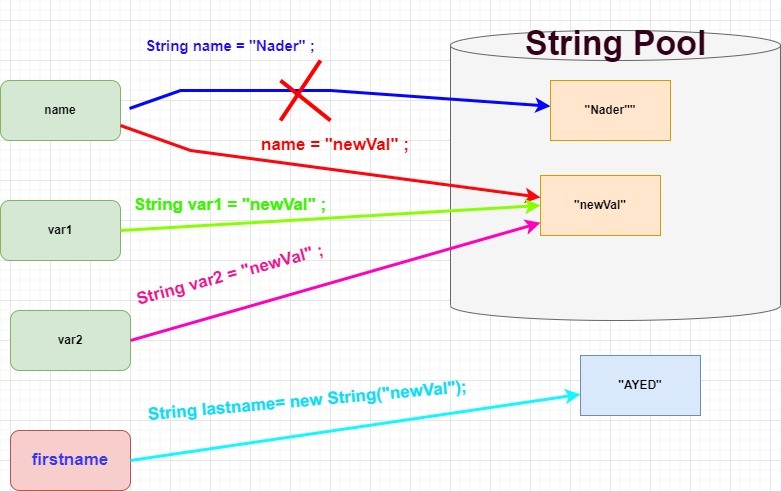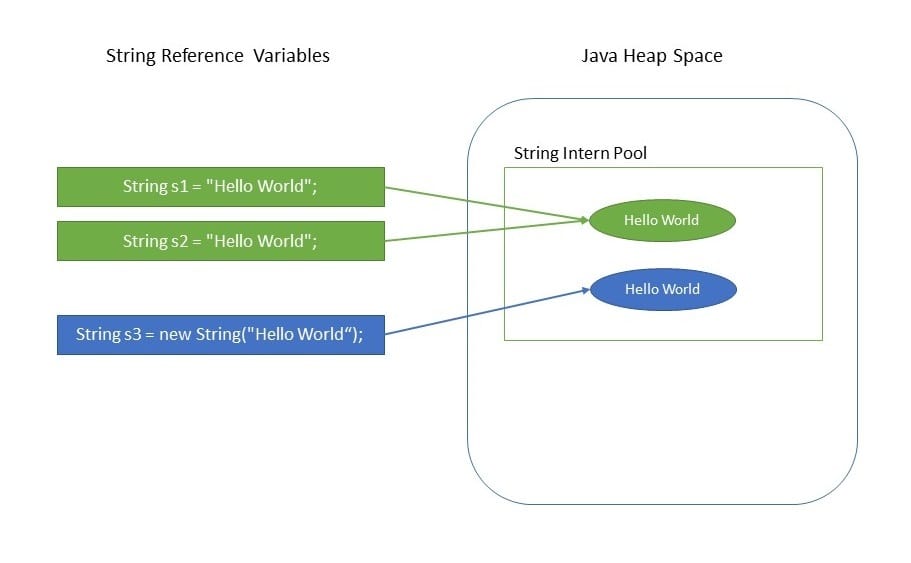Checking Out the Advantages of Unalterable Strings in Modern Shows Paradigms
In the realm of modern shows paradigms, the idea of unalterable strings stands as a cornerstone of robust software application development. By adopting unalterable strings, designers can guarantee boosted information integrity, improved string safety, streamlined debugging procedures, raised protection actions, and reliable efficiency optimization.
Enhanced Information Integrity

By avoiding the alteration of string objects, immutability gets rid of the risk of unintended changes to the information they hold. This not just improves the safety of the info however likewise enhances the integrity of the code that depends on these strings.
Immutability also sustains much safer multithreading environments, as concurrent access to immutable strings does not pose the threat of data corruption via synchronised alterations. This residential or commercial property simplifies the procedure of taking care of strings in identical programming circumstances.
In essence, immutability serves as a protective guard around the information saved within strings, boosting their stability by guaranteeing that as soon as specified, their values continue to be unmodified throughout the program's execution.

Enhanced Thread Safety And Security
Unalterable strings enhance the string safety and security of programs by making sure that once a string object is produced, its worth can not be changed. This residential property eliminates the threat of simultaneous threads attempting to customize the very same string simultaneously, which might lead to information corruption or inconsistent states in the program - Why are strings immutable in Java?. In a multi-threaded atmosphere, where numerous threads accessibility and control information at the same time, the immutability of strings offers a degree of safety by guaranteeing that the information continues to be unchanged throughout its lifecycle
Streamlined Debugging Processes
Offered the enhanced thread safety assisted in by immutable strings, a considerable benefit emerges in the realm of simplified debugging procedures. Immutable strings, as soon as created, can not be changed, making it less complicated to map the circulation of information and identify the source of insects in a program. This immutability ensures that strings continue to be constant throughout the implementation of the program, reducing the probability of unforeseen changes that could bring about mistakes.
When debugging with mutable strings, programmers often run into problems where a string's value is modified unintentionally, making it challenging to identify the source of an insect. However, with unalterable strings, the information stays the same, allowing developers to focus on examining the real logic of the code instead than tracking down where and when a string was modified improperly.
Furthermore, immutable strings streamline the debugging process by allowing simpler reproduction of bugs. Considering that unalterable strings do not alter state, developers can recreate and examine pests better, resulting in quicker identification and resolution of problems within the codebase. This structured debugging process eventually adds to higher software program top quality and enhanced total advancement effectiveness.

Enhanced Protection Steps
Enhancing information protection and fortifying system integrity, the use of immutable strings in software program applications contributes dramatically to raised protection steps. Immutable strings also play a vital duty in preventing typical safety and security vulnerabilities such as barrier overflows and SQL injection strikes, as attempts to control string information at runtime are inherently limited.
Furthermore, the immutability of strings boosts the predictability of program behavior, making it much easier to confirm inputs and stop unexpected changes that can jeopardize safety. This predictability streamlines the procedure of bookkeeping and validating code, enabling developers to recognize potential safety and security technicalities a lot more successfully. On the whole, including immutable strings right into software application growth techniques not just improves the robustness and dependability of applications yet additionally enhances their durability versus security threats.
Efficient Efficiency Optimization
Structure upon the structure of raised safety and security actions achieved via the utilization of immutable strings, an essential aspect to think about in software program development is reliable performance optimization. When taking care of mutable strings, procedures like concatenation or substring creation usually result in the production of new string items, causing memory expenses and enhanced processing time. Nonetheless, with unalterable strings, these procedures can be maximized to enhance performance. By allowing strings to remain unchangeable and constant, unalterable strings facilitate far better memory management and caching chances, inevitably boosting the total performance of the software application.
Unalterable strings likewise play an important function in multithreaded environments by promoting string safety and security. Why are strings immutable in Java?. Considering that immutable strings can not be modified as soon as produced, they can be shared throughout strings without the risk of unexpected adjustments, reducing the requirement for synchronization systems and enhancing concurrency. Furthermore, unalterable strings simplify debugging processes as developers can rely on that a string's worth will remain constant throughout the program's implementation, removing potential mistakes brought on by mutable state adjustments. In final thought, the use of unalterable strings not only enhances safety and security but likewise dramatically adds to the read more efficient performance optimization of modern-day software program systems.
Final Thought
In final thought, the advantages of making use of immutable strings in modern shows standards can not be overstated. Boosted information stability, boosted string safety, streamlined debugging processes, enhanced security my link measures, and efficient performance optimization all contribute to the total effectiveness of shows tasks. By integrating immutable strings right into shows practices, developers can take advantage of an extra robust and dependable codebase.
Immutability, a crucial function of strings in shows languages such as Java and Python, makes certain that as soon as a string things is produced, it can not be modified or customized.Immutable strings boost the thread safety and security of programs by making sure that as soon as a string item is produced, its worth can not be changed. Unalterable strings likewise play a crucial function in avoiding usual protection vulnerabilities such as buffer overflows and SQL injection strikes, as attempts to adjust string data at runtime are naturally limited.
By allowing strings to stay stable and constant, unalterable strings facilitate far better memory monitoring and caching opportunities, ultimately boosting the total effectiveness of the software application.
Immutable strings streamline debugging procedures as programmers can trust that a string's worth see this website will continue to be constant throughout the program's implementation, removing possible errors caused by mutable state adjustments.